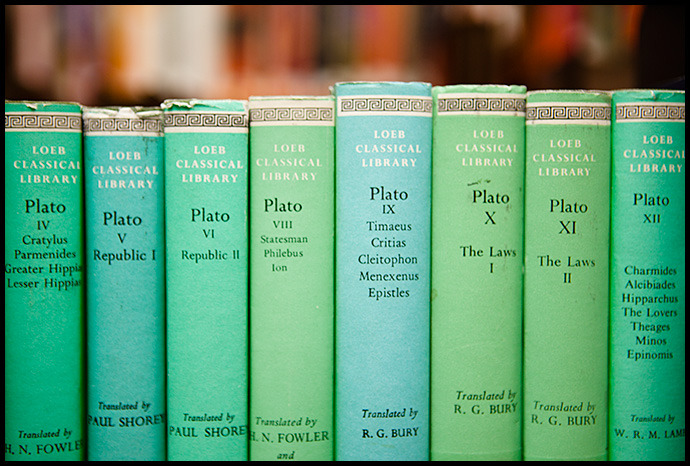Classical education has a marketing problem.
Across the nation, schools that use a classical curriculum—one that emphasizes traditional methods of teaching the basics and a knowledge of ancient literature—are producing remarkably well-educated students. (For an example of a classical curriculum, check out this school near the Intellectual Takeout offices.)
Yet, at the same time, these schools still only cater to a small portion of the population. That’s in part, I think, because of the adjective “classical” that has been affixed to this style of education by its enemies. For most of the West’s history classical education was simply known as “education”. Now that it’s known as “classical,” it’s associated in most of the public’s minds with being “nostalgic,” “irrelevant,” “useless” to modern society, and an obstacle to progress.
But according to former Harvard professor Bernard Knox (1914-2010), nothing could be further from the truth about the classics. In particular, of the Greek classics he writes:
“[I]t is strange to find the classical Greeks today assailed as emblems of reactionary conservatism, of enforced conformity. For their role in the history of the West has always been innovative, sometimes indeed subversive, even revolutionary.”
Knox then offers some of the following examples:
– The translation of Arabic versions of Aristotle into Latin had a powerful influence on scholastic philosophy and Christian theology in the Middle Ages.
– The revival of interest in neglected Latin and newly-discovered Greek classics led to the Renaissance—“that age of renewed intellectual and scientific inquiry, of exploration and colonization.”
– Greek was a favorite area of study of the leaders of the Reformation.
– Thomas Hobbes, the father of modern analytic philosophy and the author of the Leviathan, began his career with an English translation of the Greek historian Thucydides, and later published verse translations of the Iliad and Odyssey.
– The French Jesuit Gassendi’s presentation of the atomic theory of Epicurus “was to have an immense influence on modern atomic theory.”
– Before Friedrich Nietzsche upended much of recent Western philosophy, he was the chair of Classical Philology at the University of Basel.
He concludes:
“All through the history of the West the Greeks have continued to spur innovation; the contact of the modern mind with the ancient has time and again resulted in a renewal or (Nietzsche’s phrase) reversal of values.”
Out of a desire to be “progressive,” the trend in modern schools is to dramatically limit students’ exposure to ancient works and classical languages. But the fact is that progress in the West has always been catalyzed by these very things!
Most people today feel that the West is in decline. If Western civilization is to halt the decline and experience renewal in the coming years, I believe it must also be through a rediscovery of the past and a creative application of it to the present.
















Leave a Comment
Your email address will not be published. Required fields are marked with *